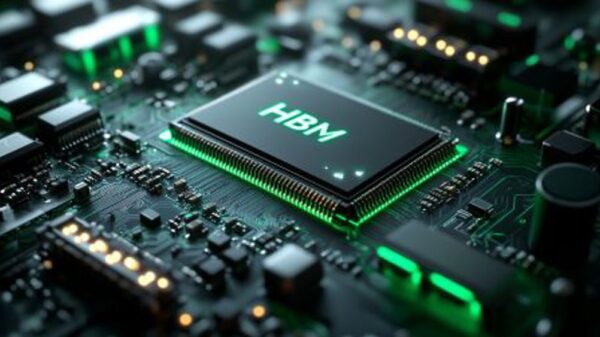Samsung has made significant strides in the realm of artificial intelligence, unveiling a groundbreaking approach that allows for the deployment of a 30-billion-parameter AI model on smartphones equipped with just 3GB of memory. This development, articulated by Dr. MyungJoo Ham, a leading figure at Samsung’s AI Research Center, could redefine how AI operates on mobile devices, offering cloud-level performance without the need for a constant internet connection.
Traditionally, a model of this scale would require upward of 16GB of memory. Samsung’s innovative compression techniques are at the forefront of this transition, utilizing advanced algorithms to transform intricate 32-bit floating-point calculations into more manageable 8-bit or even 4-bit integers through a process known as quantization. As Dr. Ham elaborates, “Running a highly advanced model that performs billions of computations directly on a smartphone would quickly drain the battery, increase heat and slow response times.”
The exemplary nature of Samsung’s approach lies not solely in size reduction but in efficient execution. Their cutting-edge algorithms scrutinize the AI model and maintain critical components with higher precision while aggressively compressing less vital elements. This method of surgical optimization ensures that performance is maximized without compromising accuracy.
An integral part of this process is Samsung’s developing AI runtime engine, which functions much like a traffic controller, determining whether the CPU, GPU, or NPU (neural processing unit) should be utilized for specific tasks. “The AI runtime is essentially the model’s engine control unit,” Dr. Ham explained. “It automatically assigns each operation to the optimal chip and minimizes memory access to boost overall AI performance.” This approach allows the system to load only pertinent data at any given moment, rather than overwhelming memory resources.
While many companies in the AI sector focus heavily on cloud computing capabilities, Samsung is positioning itself for a future where mobile devices possess genuine intelligence independent of online infrastructure. This shift could empower users with more responsive, contextually aware applications that require less dependence on external servers.
Furthermore, Samsung is exploring entirely new AI architectures to potentially supplant the transformer models that are currently the backbone of many advanced language models. This commitment to innovation suggests that Samsung isn’t just looking to adapt existing structures but is dedicated to redefining how AI can function on personal devices.
As AI technology evolves, Samsung’s advancements signal a pivotal milestone, promising a future where smartphones and home devices can harness advanced AI capabilities without relying on extensive cloud infrastructure. This breakthrough could ultimately lead to a more integrated, intelligent user experience, making AI an innate part of daily life.
See also Wichita Police Deploy Axon AI for Real-Time Translation in Over 50 Languages
Wichita Police Deploy Axon AI for Real-Time Translation in Over 50 Languages Samsung Achieves 30B-Parameter AI Model on 3GB Memory Using Breakthrough Compression
Samsung Achieves 30B-Parameter AI Model on 3GB Memory Using Breakthrough Compression Asseta AI Secures $4.2M to Enhance Intelligent Financial Tech for Family Offices
Asseta AI Secures $4.2M to Enhance Intelligent Financial Tech for Family Offices VeydooMax Unveils V5 AI Smart Hub at EICMA 2025, Attracts 100+ European Dealers
VeydooMax Unveils V5 AI Smart Hub at EICMA 2025, Attracts 100+ European Dealers AI Growth Lab Launches to Address UK’s Workforce AI Literacy Gap, Says AlphaSense’s Sanchez-Grant
AI Growth Lab Launches to Address UK’s Workforce AI Literacy Gap, Says AlphaSense’s Sanchez-Grant


































































